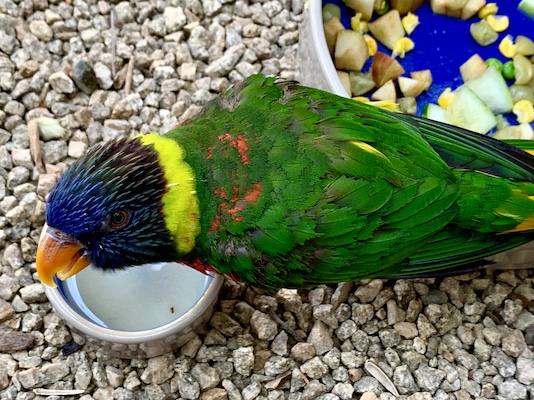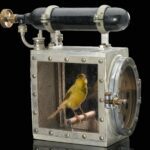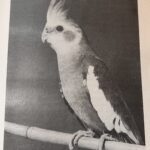
Animal research applied to parrot psychology
Previously, I wrote about animal research applied to parrot diets. This insight greatly opens up the much more prevalent research on animals, including humans. We can then supplement the much sparser research on animals, especially those kept as pets.
But how about mental disorders? There is a branch of psychology that tackles this question called trans-personal psychology. It’s not as crazy as it sounds! The article below has 40 bibliographic references so it’s not exactly a fringe line of thinking.
Trans-species psychology is the field of psychology that states that humans and nonhuman animals share commonalities in cognition (thinking) and emotions (feelings).
Trans-personal psychology—Wikipedia
There strong evidence that animals suffer from mental disorders, especially in captivity. Here is a long quote on post-traumatic stress disorder (PTSD).
PTSD, a pervasive psychological disorder, common to human prisoners of war, genocide survivors, and victims of domestic violence. It is characterized by difficulties with severe mood dysregulation, impaired interpersonal functioning, loss of sense of safety and security, and disruption in the sense of self. As with humans who suffer from this condition, non-human primates have been documented to experience chronic affective instability, self-injurious behavior, repetitive movement stereotypies, difficulties with attachment, hypervigilance, and sleeping and eating disorders. Similar symptoms have been displayed in parrots in captivity who have experienced trauma.
Trans-personal psychology—Wikipedia
Again, the similarity between humans, other animals, and parrots is emphasized. There is some parrot-specific research on mental health, but it’s fairly sparse at this point. Here’s one.
Adult parrots often express affect dysregulation, hypersensitivity to environmental change, and an inability to self-regulate that presents commonly as uncontrollable aggression, general anxiety, and excessive screaming. In many cases, these symptoms result from the disruption or diminished quality of parent-young developmental interactions, what is referred to as relational trauma
Avian Affective Dysregulation: Psychiatric Models and Treatment for Parrots in Captivity—The Proceedings of 30th Annual Association of Avian Veterinarians Conference
A side note here is that there is virtually no research or compelling evidence that wild animals suffer from mental illnesses, only theories. Here’s a snippet from an article from the BBC that presents some of these.
So far, spotting wild animals that are suffering from mental disorders has proved tricky.
Many Animals Can Become Mentally Ill—BBC Earth
There may be a simple reason for that: maybe animals with mental disorders don’t make it in the wild. They do not necessarily get the care or support that mentally ill humans do, so if they can’t perform critical tasks they may not survive long.
That’s possible, but it could also be that people simply haven’t looked, says Bekoff. Even if they see animals that seem sad or otherwise behaving oddly, they usually don’t try to figure out what could be happening.
More profoundly, it is difficult to tell if a seemingly abnormal behaviour is a sign of illness, or just out of the ordinary. In many cases we don’t know enough about what constitutes “normal behaviour” to decide.
It’s hard to overestimate how opening up animal research to diagnose and treat parrots could improve bird health. Vets that are scientifically-minded have precious little research to go on and often have to rely on anecdotal evidence. Now a whole larger world is available to them.




